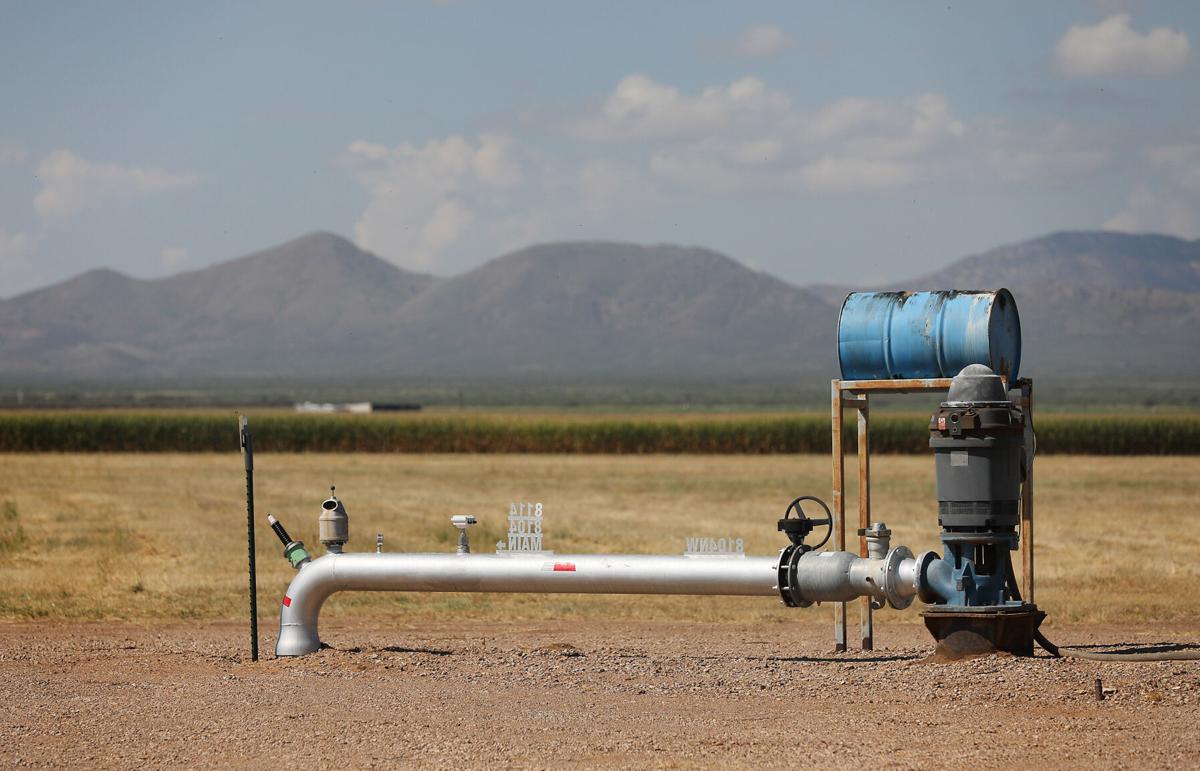Farmers and related companies opposing hotly contested citizen initiatives to set up state regulation of groundwater pumping in the Willcox and Douglas areas are running away with the fundraising competition as Tuesday’s election draws near.
Fueled by contributions running as high as $10,000 from various companies, the opposition group, a political action committee calling itself Rural Water Assurance, had raised about $65,000 through Oct. 22, the close of the last fundraising period for the campaign before Election Day, state records show. The group’s campaign funds come mainly from larger donors starting at around $5,000 apiece.
The political action committee supporting the initiatives, Arizona Water Defenders, had raised about $16,000 as of that day, the records show. It’s relied almost exclusively on small donations from individuals, many concentrated in the liberal enclave of Bisbee.
On Tuesday, voters living in what’s known as the Willcox Basin will decide whether to establish a state-run Active Management Area to control groundwater pumping there. Voters living in the Douglas Basin, lying just south of the Willcox Basin, will decide on a similar measure for their area the same day.
The two groups divide over whether state regulation is needed to combat the area’s chronic problem of declining water levels and drying wells due to longstanding unregulated groundwater pumping.
The Rural Water Assurance committee has received more than 90% of its funds in contributions of at least $2,000, and received more than half its money in contributions exceeding $5,000. Close to one-fourth of the total donations to that group have come from individuals and companies based outside Cochise County, including several from out of state.
Companies giving the group $10,000 include Western Hydro Engineering and White Water Irrigation, both of the unincorporated community of Cochise in the Willcox Basin. A total of $10,000 was given by two companies, White Water Farms and White Brothers Grain, that operate out of the same Elfrida address in the Douglas Basin.
Arizona Water Defenders has reported only two contributors who have given more than $1,000 — both individuals. Cheryl Knott of Pearce, the group’s Willcox Basin volunteer coordinator, has donated nearly $3,470. Ashley Dahlke of Bisbee, who chairs Arizona Water Defenders, has donated $1,767. The vast majority of the donors supporting the initiative live in Cochise County.
If Active Management Areas are approved for the two basins, new irrigation there would be banned. Existing farmers would be grandfathered in so they could keep pumping. But over time, they would likely face conservation requirements to gradually reduce their pumping.
The Arizona Department of Water Resources would decide whether to set a goal of “safe yield” for the area, which would ultimately require that the total amount of pumping in each basin not exceed the amount of rainwater and other water sources replenishing the aquifer. Currently in the Willcox Basin, by contrast, pumping exceeds natural replenishment of the aquifer by four times, a 2018 study done by the state water agency concluded.
Safe yield is today the goal for four of five existing water Active Management Areas in the state, including one for the Tucson area. The management areas being proposed for the Willcox and Douglas basins would be the first that aren’t centered in urban areas ranging from as small as Nogales to as large as Phoenix.
On its website, Arizona Water Defenders argues that without Active Management Areas, the over-pumping in this region will escalate, putting more of the control of the area’s groundwater in the hand of large companies, many headquartered out of state. Many residents in the area own wells that already are too shallow to reach the groundwater table or soon will be, the group said. Anecdotal accounts have placed the number of dried up wells in the area well into the dozens, the Arizona Daily Star has found.
When ADWR decides on what goal to set for an Active Management Area, it must first hold public meetings and accept public comments, the group said.
“When was the last time an out of state agri-business asked you for your comments on their plan to use more water?” the group asked.
Rural Water Assurance argues that creating Active Management Areas will remove any possibility of local control over water use, investing it instead with the state.
“f you have property today you intend to develop in the future to expand your farm, your ranch, or your vineyard, converting to an AMA will greatly slow or even stop that,” the group said on its website. “Likewise, if you have land you’d like to develop for housing, an AMA will require you to demonstrate a 100-year assured water supply before you can build. You will lose control of your property, your way of life and your future.”
If an AMA is created, individuals’ and business’ existing water use will be frozen in place and landowners will only be able to irrigate land that’s been under cultivation during the previous five years. Cities, towns, private water companies and irrigation districts also would be required to obtain a service area right from the state to withdraw groundwater for delivery to landowners and residents within their service areas, the group said. Also, landowners whose wells use more than 35 gallons a minute will have to measure their groundwater use and report it to the state, the group said.
Because the opponents have raised far more money than the initiatives’ supporters, that gave them far more money to spend in the campaign’s crucial closing weeks. Arizona Water Assurance reported having about $46,000 left in its coffers as of Oct. 22. Arizona Water Defenders reported having $2,760 left on the same day.





